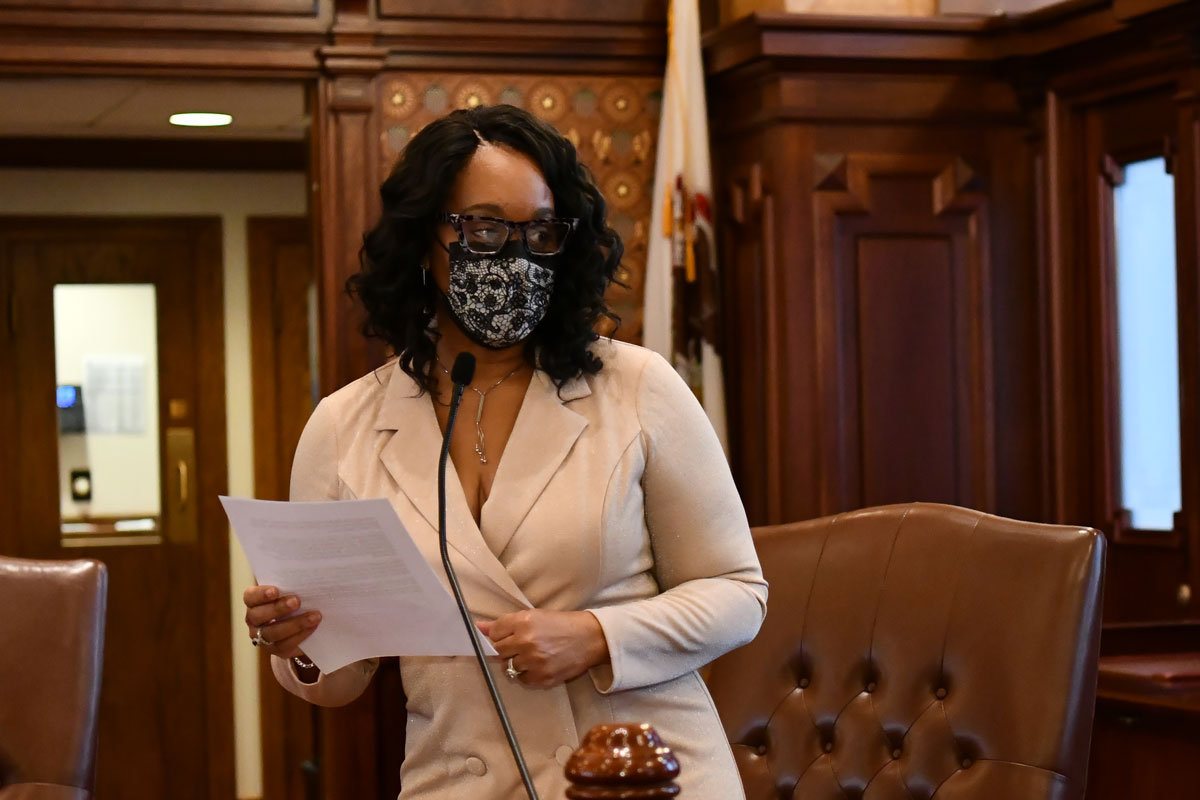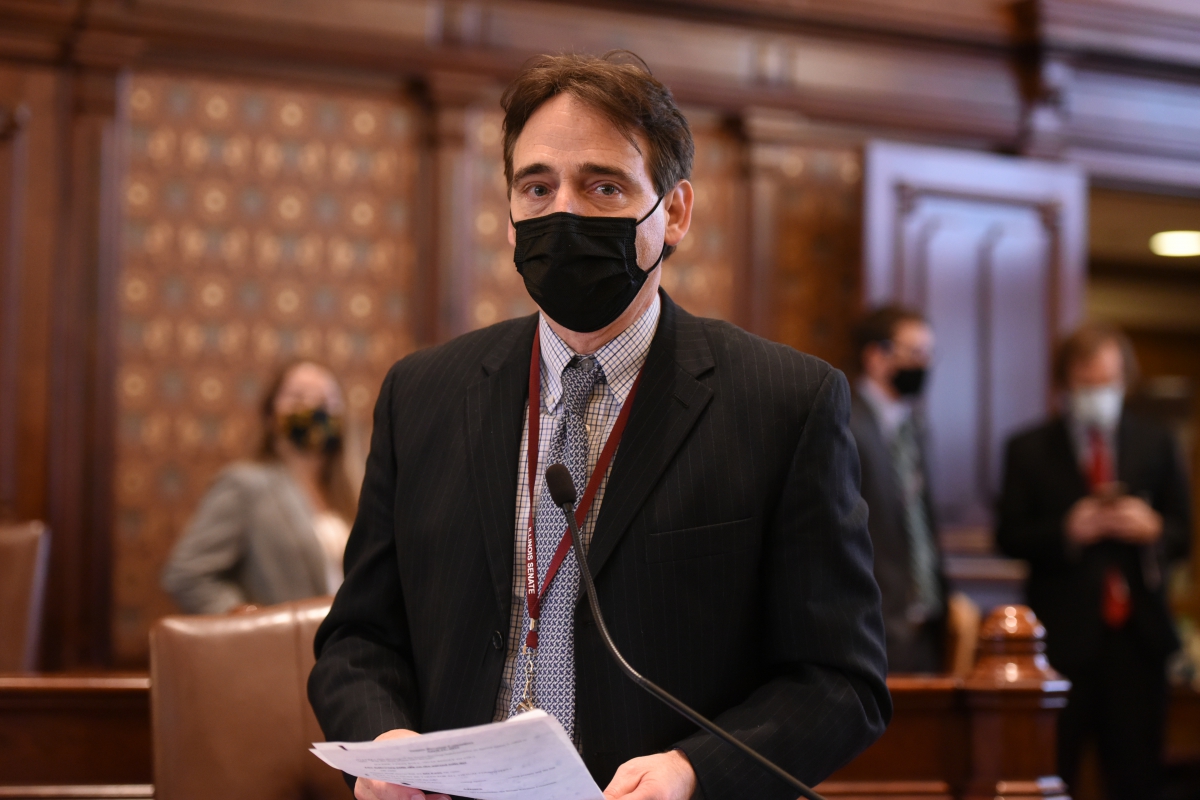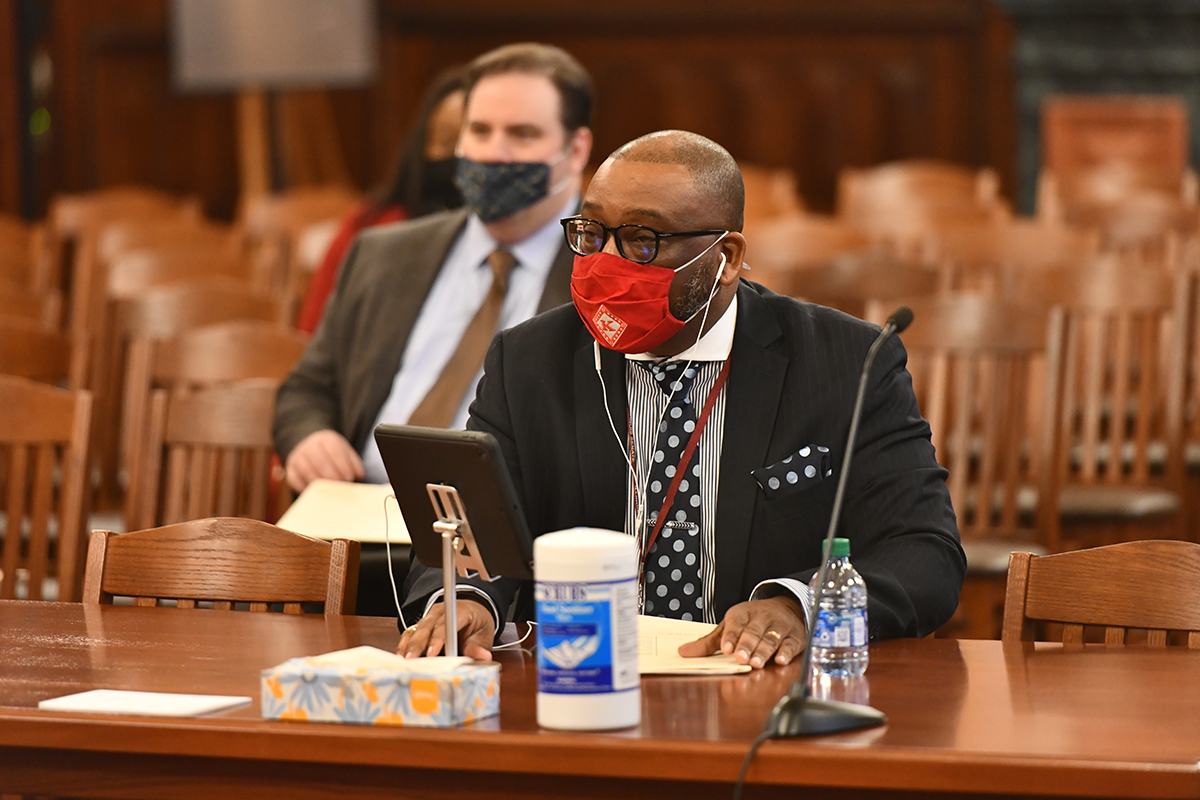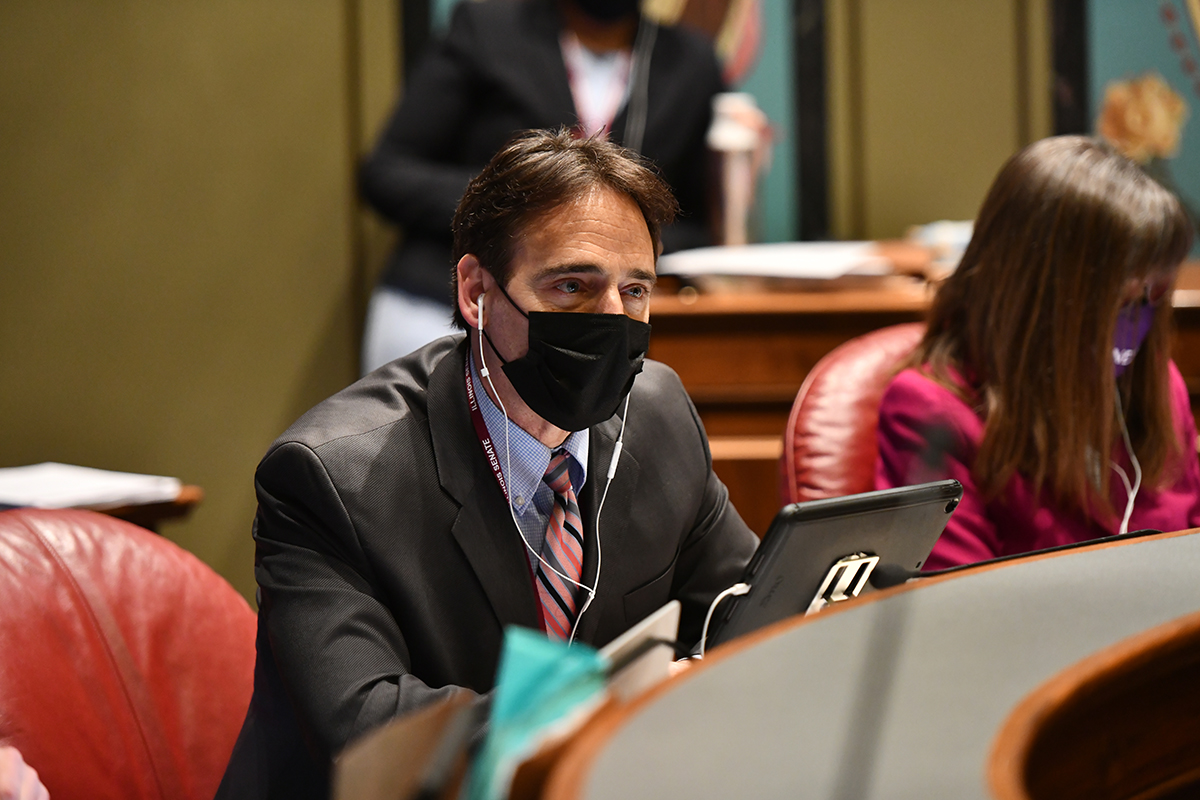- Details
- Category: Senator Ann Gillespie News

SPRINGFIELD – Two measures introduced by State Senator Ann Gillespie (D-Arlington Heights) that would assist school social workers with earning and paying off their degrees passed the Illinois Senate today.
“Illinois schools face a shortage of professional, culturally competent social workers,” Gillespie said. “We must make it easier for our future social workers to finish and pay off their education so that schools can hire the positions they desperately need to fill.”
Senate Bill 661 would require the Illinois Student Assistance Commission (ISAC) to award up to 250 Post-Master of Social Work Professional Educator License scholarships each year. Scholarship recipients would be required to work at a public or not-for-profit P-12 school in Illinois for at least two of the five years immediately following their graduation.
- Details
- Category: Member News

Though the work of fully implementing the laws will take years – perhaps decades – the Illinois Legislative Black Caucus’ year-long effort to cleanse Illinois’ government systems of racism is officially the law of the land. The fourth and final pillar of their agenda – health care and human services – was signed by the governor in late April.
When George Floyd’s murder at the hands of a Minneapolis police officer sparked worldwide protests, Senate Majority Leader Kimberly A. Lightford (D-Chicago) – who was chair of the Black Caucus – called together her colleagues to take advantage of that anger and energy to enact real change.
The caucus gathered and decided that rather than focusing solely on police reform, they would push forward with an ambitious agenda. The goal was to confront problems they had been trying to solve for the entirety of their careers – problems that had held them back, their children back, and so many others in the Black community, problems that were baked into the very fabric of American society.
They decided to go back to the very beginning and examine Illinois’ laws for inherent racist policies born out of the eras when they were written. They also looked at societal problems confronting Black Illinoisans (and often by extension Brown or lower-income Illinoisans) to try to figure out if different government policies could be used to improve people’s lives.
- Details
- Category: Senator Kimberly A. Lightford News
 SPRINGFIELD – In effort to support new employees of Illinois’ educational system, Senate Majority Leader Kimberly A. Lightford (D-Maywood) is working to create a New Teacher Induction and Mentoring Program and a New Principal Mentoring Program.
SPRINGFIELD – In effort to support new employees of Illinois’ educational system, Senate Majority Leader Kimberly A. Lightford (D-Maywood) is working to create a New Teacher Induction and Mentoring Program and a New Principal Mentoring Program.
“Ensuring all new educators receive support while developing essential knowledge, skills, and experience will result in a high-quality education for all students,” Lightford said. “A mentoring program would be a great way to build our new educators’ confidence and teaching strategies, helping create a great learning environment and experience for Illinois’ diverse learners.”
Senate Bill 814 would enable the state to invest in high-quality mentoring and induction programs for new teachers and leaders, which can increase retention, accelerate novice teachers’ and leaders’ professional learning, and improve student achievement.
Read more: Lightford seeks to create new mentoring program for teachers and principals
- Details
- Category: Senator Cristina Castro News

ELGIN – This week is Work Zone Awareness Week, and as temperatures warm and construction ramps up throughout Illinois, State Senator Cristina Castro (D- Elgin) is reminding people to slow down and be vigilant when driving through work zones.
“We’re hitting the time of year when road construction is increasing,” Castro said. “It’s important that we keep those hardworking men and women who fix our roads and bridges safe by slowing down and moving over when we see orange lights and signs.”
Illinois averages 6,400 crashes in work zones each year, resulting in 1,700 injuries and 34 deaths. When it comes to deaths associated with accidents in work zones, more than nine out of ten are someone other than a worker, including drivers, passengers, pedestrians and bicyclists.
Read more: Castro recognizes Work Zone Awareness Week and urges travelers to be safe
- Details
- Category: Senator Steve Stadelman News
SPRINGFIELD – In efforts to raise awareness and honor those who have died in work zones across Illinois, State Senator Steve Stadelman (D-Rockford) is highlighting the Illinois Department of Transportation’s Work Zone Awareness Week.
Bridges and buildings throughout the state will be turning orange this week to honor those who have died in work zones and to raise awareness as the Illinois Department of Transportation signals the start of another construction season.
“If you’re driving over the Morgan Street Bridge at night and notice the orange lights, take a moment to recognize all of the Illinoisans we’ve lost to work zone construction accidents,” Stadelman said. “I’m grateful that the city of Rockford is participating in this statewide effort.”
- Details
- Category: Majority Report
Bennett plan to prevent pharmacies from hiding drug prices passes Senate
SPRINGFIELD — To improve transparency around prescription drug costs, State Senator Scott Bennett (D-Champaign) moved a measure through the Senate requiring pharmacies to post a notice informing consumers that they may request current pharmacy retail prices at the point of sale.
“Consumers deserve to know the lowest drug prices at their pharmacy so they can make an informed decision about where they buy their prescriptions,” Bennett said. “High prescription drug prices affect us all, and this legislation seeks to provide truth and transparency.”
Belt: When young Illinoisans are going hungry, wasting food is not an option
SPRINGFIELD — A measure sponsored by State Senator Christopher Belt (D-Centreville) that would require the Illinois State Board of Education to create an unused food program for schools passed the Senate last week.
“No child in Illinois should go to bed hungry,” Belt said. “This program will build on the success of the free lunch and breakfast program the state already has in place.”
Stadelman measure protecting sexual assault survivors passes Illinois Senate
SPRINGFIELD — A measure sponsored by State Senator Steve Stadelman (D-Rockford) that would make civil no contact orders permanent for sexual assault survivors whose assailants are criminally convicted of sexual assault passed the Senate last week.
“People who’ve been through a sexual assault will live with the trauma for the rest of their lives,” Stadelman said. “I believe it’s our responsibly to help ease their burdens and not make them relive that trauma by forcing them to return to court year after year.”

Redistricting process underway
The Illinois Senate Redistricting Committee is holding a series of hearings across the state to receive input for the once-in-a-decade process of drawing new legislative boundaries.
This week, the Senate will host a number of those hearings. The dates are as follows:
- Peoria, Tazewell and Macon Counties: Thursday, April 29 at 3 p.m. (virtual)
- Sangamon and Macon Counties: Friday, April 30 at 11 a.m. (virtual)
- Chicago West/Cook County West: Saturday, May 1 at 10:30 a.m. - This is a hybrid committee, so you can watch either online or in-person at Malcolm-X College auditorium, 1900 West Jackson Boulevard, Chicago 60612
- Statewide Redistricting: Saturday, May 1 at 5 p.m. - This is a hybrid committee, so you can either watch online or in-person at Chicago State University, 9501 S. King Street, Chicago 60628
To watch the committees, visit ilga.gov then click "audio/video" under the Senate tab at its start time. If you would like to testify or submit written testimony, contact us at
Additionally, The Illinois Senate Democratic Caucus has launched an online portal that allows the public to draw and submit proposed legislative boundaries.
The portal presents the first time in Illinois history that the public can go online to craft proposed maps, allowing for greater access and public participation in the once-a-decade redistricting process. All maps submitted through the portal will be reviewed as part of the public record. The portal can be accessed online day or night at ilsenateredistricting.com.

In case you missed it
MEMBERS IN THE NEWS
Senator Jacqueline Collins, Chicago: Nursing home advocates seek law requiring facilities to offer virtual visits | Chicago Tribune
Senator Laura Fine, Glenview: Senator Fine Pushes for Easier Access to Mental Health Care | Lawndale News
Senator Suzy Glowiak Hilton, Western Springs: Watch now: Illinois Senate OKs plans for dental care, liaisons for homeless students | Quad-City Times
Senator Julie Morrison, Lake Forest: Illinois Senate approves bill prohibiting vaping products marketed toward children | WSILTV ABC 3
Copyright 2021 - Illinois Senate Democratic Caucus - All Rights Reserved
- Details
- Category: Senator Ram Villivalam News

CHICAGO – To honor the working people who have died in work zones, State Senator Ram Villivalam (D-Chicago), Chair of the Senate Transportation Committee, is reminding drivers to slow down and move over when passing through work zones this upcoming construction season.
“Road builders keep commuters and our economy moving, so please give them the space they need as you drive through work zones,” Villivalam said. “We all want to make it home to our families at the end of the day.”
- Details
- Category: Senator Laura Ellman News

SPRINGFIELD – State Senator Laura Ellman (D-Naperville) recently honored 959 Naperville-area high school students who were named 2021-22 Illinois State Scholars by the Illinois Student Assistance Commission.
Illinois State Scholar winners rank in approximately the top 10% of the state’s high school seniors from 676 high schools in all 102 counties. Selection is based on a combination of standardized test scores and class rank or unweighted GPA at the end of the student’s junior year. ISAC works in conjunction with the students’ high school guidance counselors to determine the winners.
“It’s no secret the last two school years have been tough,” Ellman said. “That is why I’m so proud of these students for earning this award. Not only did the students perform admirably, but they did it during a once-in-a-lifetime pandemic. I want to recognize their support systems as well. The school staffs across the district have done an exceptional job.”
The scholars from the Naperville area include students from nine area high schools, including Benet Academy, Lisle, Naperville Central, Naperville Christian, Naperville North, Neuqua Valley, St. Francis, Wheaton North and Wheaton Warrenville South high schools.
Read more: Ellman honors Naperville-area Illinois State Scholars
More Articles …
Page 500 of 762



